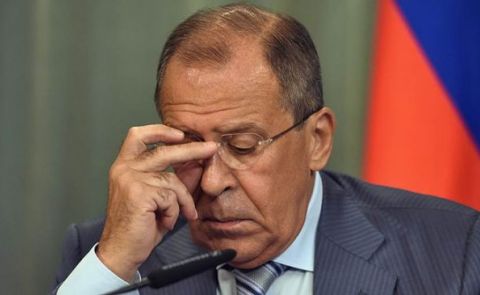
Comments from Armenia and Azerbaijan on meeting between Aliyev and Pashinyan in Brussels

On 6 April, at the meeting of the leaders of Azerbaijan and Armenia in Brussels, it was agreed they would convene a Joint Border Commission by the end of April and instruct the foreign ministers to work on the preparation of a future peace agreement. The statement came from EU Council President Charles Michel after a meeting.
President Michel said that both President Aliyev and Prime Minister Pashinyan expressed their desire to make rapid progress towards a peace agreement between the two countries. "It was agreed they would instruct the foreign ministers to work on a peace agreement that will cover all necessary issues."
"The organisation of the meeting between the leaders of Azerbaijan and Armenia in Brussels is an initiative of French President, Emmanuel Macron. By doing this, he is trying to demonstrate his political activity on the eve of presidential elections," former Foreign Minister of Azerbaijan, Tofig Zulfugarov, said while commenting on the results of a meeting between Azerbaijan President Ilham Aliyev and Armenian Prime Minister Nikol Pashinyan in Brussels.
“Some issues raised by the European Union, as well as the OSCE Minsk Group, contradict Azerbaijan’s position. The co-chairs of the Minsk Group, mainly France, are trying to uphold the future status of Nagorno-Karabakh on the agenda in favour of Armenian interests. They should know that it will never be accepted by Azerbaijan. We must understand that the meeting of the leaders of the European Union, Azerbaijan, and Armenia has nothing to do with the new negotiation format. Serious measures must be taken into account for the arrangement of the productive negotiations. At such meetings, no positive steps have been taken,” he added.
Tofig Zulfugarov said that Pashinyan would visit Moscow after the Brussels meeting. "It is likely that Pashinyan will try to convince Kremlin officials at the meeting that he does not support the West. Armenia is a state completely dependent on Russia. It is not able to move freely in international relations like Azerbaijan,” he concluded.
Earlier, the official representative of the Russian Foreign Ministry Maria Zakharova announced that Armeniam Prime Minister Nikol Pashinyan will pay an official visit to Moscow in April. Pashinyan's visit is scheduled for the 11th-20th of April. “Other contacts are being developed at various levels,” Zakharova said.
UK-based Armenian multimedia journalist and former consultant of OSCE Onnik Krikorian said that it is “difficult to consider that the OSCE Minsk Group co-chairs can cooperate while Russia's invasion of Ukraine continues, but that said, Pashinyan today said that Armenia-Azerbaijan border delimitation and demarcation can be supported by both the EU and Russia.”
“Nevertheless, the British Ambassador to Armenia yesterday said the UK supports the OSCE Minsk Group, and Pashinyan today mentioned a need to engage it in negotiations. Just strikes me as strange, on the one hand, to seek to isolate Russia and on the other to embrace it,” he highlighted.
Krikorian said that “it is worth noting that the OSCE Minsk Group was not mentioned as a platform for the launch of peace negotiations. Basically, the Minsk Group was anyway questionable, and war in Ukraine really makes a joint US-France-Russia platform even more so. However, this does not mean OSCE Minsk Group co-chair countries can't assist, but a supporting role by the EU and OSCE itself sounds better.”
“The wildcard in all of this, of course, is Russia, but even despite Ukraine, it's clear that every major international body and country from the EU and OSCE to the US and Russia supports the announcement of work on an Armenia-Azerbaijan peace treaty. Also note that work on an Armenia-Azerbaijan peace treaty is especially important given the Armenia-Turkey normalisation process. Doesn't matter if people think they shouldn't be linked, the reality is that they are, though to what extent is another issue,” he concluded.
Farhad Mammadov, an Azerbaijani political scientist and expert of the Valdai International Discussion Club flagged that “Michel recalled all the topics discussed in December. Although Michel noted that he feels progress, only Azerbaijan has progress on the agenda since December: the Iran memorandum, further strengthening the border - maintaining initiative. The EU chip is a financial component - and Charles Michel used it: promised financial support for liquidation, restoration, and economic and investment plan. It is believed that this will be done within the framework of the declared EU final package to the countries of the region.”
“The greatest innovation is the deepening of the bilateral format. For the first time this happened in Sochi in November last year, they agreed on the bilateral border commission, then in December last year, a meeting of tête-à-tête. Although this time there were no tête-à-têtes, they promised that new formats and a specific agenda have appeared. Let's list: 1) meeting of the leaders of Armenia and Azerbaijan, 2) it has been agreed that the heads of the Foreign Ministers will discuss in a bilateral format Peace Treaty, 3) the format of meetings of personal representatives remains, 4) by the end of April it is planned to create a bilateral Joint Border Commission with a mandate: delimitation and security,” he added.
Mammadov also added that “according to deadlines we already have negative experiences. The trilateral statement of 11 January 2021 set deadlines for the inter-regulatory commission - however there was no progress. We will wait not long, just a month. Interestingly, there were two links to trilateral statements from November 10, 2020, and November 24, 2021, i.e., these are the documents where the signatures of the leaders stand, and this is the basis from which we should reject. And here there is already a role of Russia. The bilateral party allows Armenia to prolong the process, however, the definition of deadlines must tighten them, but practice shows that if this time they will ‘play a fool,’ then Baku will continue using pressure mechanisms.”
The Azerbaijani political scientist concluded his thought by examining possible Russian reactions to the meeting. “We will find out within 10 days [during] Pashinyan's visit to Moscow… In a year and a half, Russia intensified exactly after the West intervened in mediation. We will be watching,” he stated.
"Constructive ambiguity, search for the third way, agree to disagree but still ready to give it a chance. What other terms have you heard since early morning about this statement? At least no claims… diplomatic victory or capitulation. Already a good start,” underlined senior South Caucasus analyst at The International Crisis Group and former journalist at the New York Times Olesya Vartanyan.
Co-founder of the Republican Alternative Party, executive secretary and member of the Political Committee Natig Jafarli said that “the final text refers to the Sochi agreement, which was written to take Moscow's ashes, and it is clear that the Kremlin cannot be completely excluded from these talks. That is, it is a good start, a real real-political approach, but now the main progress will depend on the practical steps to be taken, as they say, will be determined in the field. Both countries must refrain from provocations, especially from the North, and try to take coordinated steps.”
Political scientist from Armenia Tigran Grigoryan noted that “the non-mention of Karabakh in the press release of the trilateral meeting largely corresponds to Azerbaijan’s position that the Nagorno-Karabakh conflict is over and there is no unit called Nagorno-Karabakh.” Nevertheless, the political scientist is convinced that both issues related to the Karabakh conflict and indirect references to the situation in Nagorno-Karabakh are discussed during those meetings. “For example, the same statement talks about reducing tensions and other similar topics, although a neutral vocabulary is used. But the problem is that the Armenian delegation is not able to achieve clear mention of the issues in Nagorno-Karabakh, as well as the need to resolve the Karabakh conflict in those statements,” Grigoryan added.
Azerbaijani political commentator Shujaat Ahmadzada shared his comments on recent meeting between Armenia and Azerbaijan in Brussels. “It seems that the Armenian public is dissatisfied with yesterday's meeting in Brussels and its results. They claim that the European Union supports the position of the winner (Azerbaijan), and the steps in the final statement are largely in line with the position of the winner. The point is that this remark is absolutely correct. The positions of the European Union and Azerbaijan in the post-2020 period coincide with two exceptions,” he noted.
“The first of these stems from the connection between ‘reality’ and ‘plan.’ Any solution plan is based on certain realities. A plan that does not reflect reality remains a utopia. The plans proposed for 1994-2020 were based on the results of Armenia's victory. Now the roles have changed - the proposals are based on Azerbaijan's victory. The second is related to the concept of status quo bias. One of the principles of management is that decision-makers unequivocally ‘suffer’ from this prejudice. That is, they are more interested in maintaining the current situation than in creating a completely new situation,” Ahmadzada underlined.
Expert on Azerbaijan from Armenia Tatevik Hayrapetyan by opposing Pashinyan’s policy on Azerbaijan stated that “unfortunately, Pashinyan only accelerates the processes aimed at Armenia and Nagorno-Karabakh that are not in our interests. What is the peace deal when you are threatened from morning to night? It's not peace, it's one-sided capitulation.”
See Also

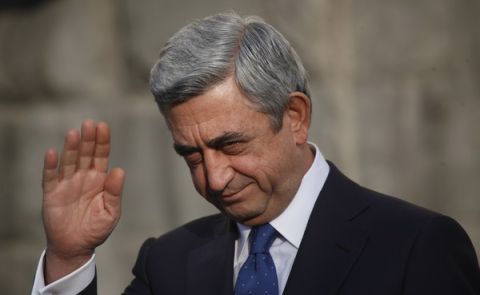
Serzh Sargsyan Rejects Charges, Backs Impeachment, and Warns of Secret Deals
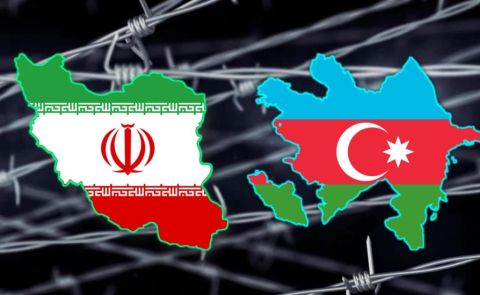
Azerbaijan Confirms Execution of Terrorist Behind Embassy Attack in Iran
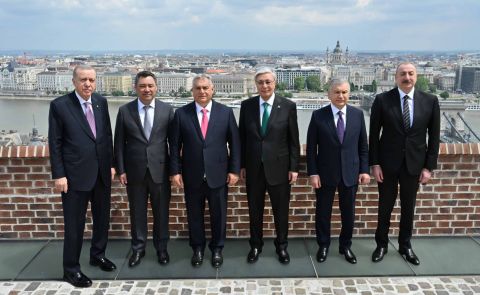
Turkic Leaders Adopt Budapest Declaration, Emphasizing Peace, Trade, and Digital Connectivity
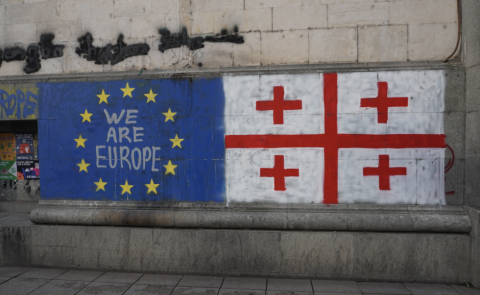
International Officials Criticize Georgian Dream Amid Democratic Concerns

